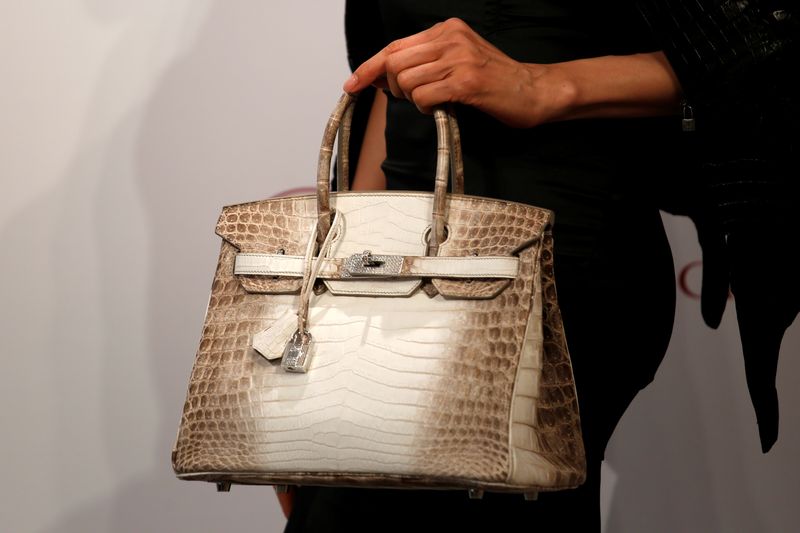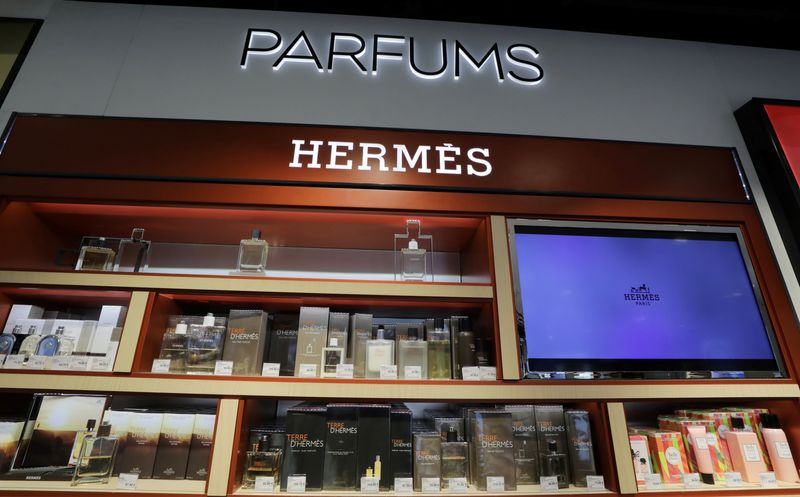By Blake Brittain
(Reuters) -French luxury house Hermes International (OTC:HESAF) has asked a Manhattan federal court to block artist Mason Rothschild from promoting or owning his "MetaBirkin" non-fungible tokens after a jury found they violate Hermes' trademark rights in its famous Birkin bags.
Hermes said in a court filing Friday that Rothschild has continued to market his NFTs despite the jury's verdict last month. It asked the court to force him to stop using "Birkin" trademarks and to transfer the MetaBirkins website, the NFTs that he still owns and his income from sales of the tokens since the trial to Hermes.
Rothschild's attorney Rhett Millsaps on Monday called the filing a "gross overreach by Hermes and an attempt to punish Mr. Rothschild because they don’t like his art." He said they will oppose Hermes' motion this week.
Representatives for Hermes did not immediately respond to a request for comment Monday.
NFTs are unique tokens on blockchain networks that are often used to verify ownership of digital art. Hermes sued Rothschild last year over his MetaBirkins, 100 NFTs associated with images depicting the bags covered in colorful fur.
The fashion house called Rothschild a "digital speculator" and the NFTs a "get rich quick" scheme, and said over $1 million worth of the tokens had been traded in less than a month after they were introduced.
Rothschild, whose legal name is Sonny Estival, countered that the works are an absurdist statement on luxury goods and immune from the lawsuit based on First Amendment protections for art. A jury disagreed and ruled for Hermes in February, awarding the company $133,000 in damages.
Hermes said in its Friday court filing that Rothschild receives a 7.5% royalty for all MetaBirkin sales, and that he has continued to promote the NFTs on the MetaBirkins website and social media accounts since the verdict.
"Rothschild has continued acting as he has since November 2021 — brazenly violating Hermès's intellectual property rights," Hermes said.

The company said a permanent injunction was needed to stop Rothschild's conduct because he has "shown that he cannot be trusted," alleging Rothschild had "repeatedly made false statements" in business dealings and at trial.
The case is Hermes International v. Rothschild, U.S. District Court for the Southern District of New York, No. 1:22-cv-00384.
